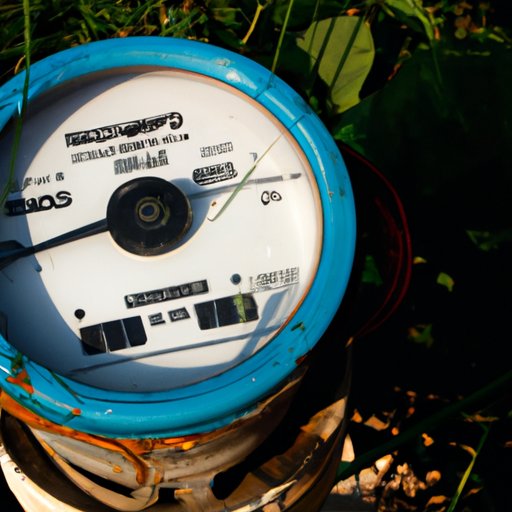
Introduction
If you are like most homeowners, you might not have thought much about your water meter and how it works. However, understanding your water meter is an important step in protecting your financial and environmental resources. In this article, we will help you learn how to read your water meter, including tips for better meter reading, interpreting readings and identifying common problems.
The Importance of Understanding Your Water Meter
Before we dive into the nitty-gritty of water meter reading, let’s take a moment to discuss why it’s important in the first place. By understanding your water usage, you can save money and conserve resources. Keeping track of your water meter readings will also help you catch leaks early and avoid unexpected bills. Overall, understanding your water meter and usage is an essential tool for managing your household expenses and protecting the environment.
The Basics of Reading Your Water Meter
The first step in reading your water meter is to locate it. Most water meters are located outside the home, near the main water line coming into the house. Once you know where your water meter is, you will need to access it. Often, this requires using a special tool that you can purchase at your local hardware store or from your water utility company.
Once you have access to your water meter, you will notice that there are several different types of meters and measurements. Your water meter will likely either be a mechanical meter or a digital meter. A mechanical meter has a spinning wheel or dial, while a digital meter displays numbers on a screen. Regardless of the type, your water usage is measured in gallons or cubic feet.
To take a meter reading, you will need to read the numbers on your meter. If you have a mechanical meter, you will want to read the numbers on the spinning dial. Write down the numbers exactly as they appear, including any zeroes at the beginning. If you have a digital meter, you will want to read the numbers on the display screen. Again, write down the numbers exactly as they appear, including any decimal points.
Tips and Tricks for Better Meter Reading
While reading your water meter may seem straightforward, there are some tips and tricks that can make the process easier. One helpful tool is a magnifying glass, which can help you read the small numbers on a digital meter. Additionally, keeping a log of your readings can help you stay organized and track your water usage over time. For even more convenience, consider investing in a smart meter that can provide real-time water usage data and alerts for unusual spikes in usage.
What Your Water Meter Tells You About Your Home and Environment
Beyond just tracking your own water usage, reading your water meter can also provide insight into the bigger picture of how our water usage impacts natural resources and the environment. Understanding your meter readings can help you identify ways to conserve water and reduce your environmental impact. Additionally, keeping track of your usage can help you identify potential issues, such as water waste or inefficient appliances.
Catching Leaks Early: How to Read Your Water Meter and Identify Problems
One important reason to regularly read your water meter is to catch leaks early. Common signs of water leaks in the home include dripping faucets, running toilets, and wet areas around pipes and appliances. If you suspect you have a leak, you can use your water meter to identify the issue. First, turn off all water sources in your home and take a meter reading. Wait an hour and then take another reading. If the second reading has increased, you likely have a leak somewhere in your home.
If you do suspect you have a leak, it’s important to address it promptly to prevent further water waste and damage. For small leaks, you may be able to fix the issue on your own. However, for larger leaks or more complex issues, it’s best to call a professional plumber to take care of the problem.
Conclusion
Overall, understanding your water meter is an essential step in managing your household expenses and protecting the environment. By regularly reading your meter and taking steps to conserve water, you can save money on your water bill and reduce your environmental impact.





